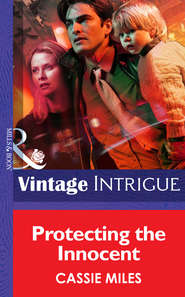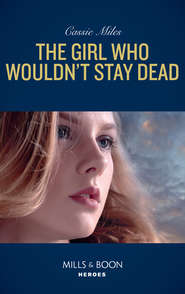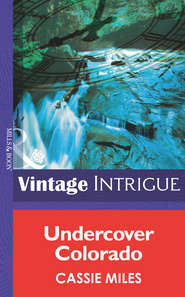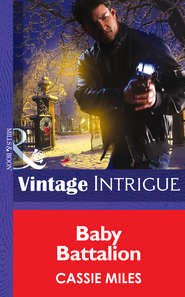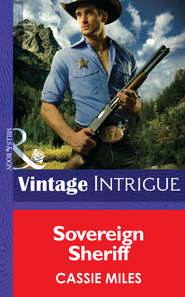По всем вопросам обращайтесь на: info@litportal.ru
(©) 2003-2024.
✖
Frozen Memories
Автор
Год написания книги
2018
Настройки чтения
Размер шрифта
Высота строк
Поля
Jagged branches clawed the arms of her sweatshirt and tangled with her bare hands as she fought her way to the edge of a clearing in the mountain forest. Falling snow blanketed the open space. Spears of afternoon light cut through the snow and clouds, but she still couldn’t see all the way across, to the wall of pines on the opposite side. She shivered violently. If she tromped straight through the clearing, she’d leave tracks. They’d find her.
Who were they, those men with guns? What did they want from her? She peeked over her shoulder but didn’t see them following. Her ears prickled, but she didn’t hear them coming after her.
They’d left her on the floor in the back of the van. She hadn’t moved, hadn’t opened her eyes. They must have thought she was unconscious. One of them had nudged her with his steel-toed boot, but she hadn’t given any sign of wakefulness. They’d talked about whether or not they should take her into the cabin with them. And they had decided not. They hadn’t wanted to carry her. If she froze in the van, they didn’t care.
Glad that they were so stupid, she’d waited until they’d gone inside. Then she ran. Without a parka. Without mittens. Without boots. Wearing only sneakers and a hooded sweatshirt over a flimsy pair of hospital scrubs, she’d staggered into the storm. The cold should have awakened her, but she’d felt lethargic. Her legs were heavy; her feet weighed her down like cement boots. She lurched through the trees, uncoordinated, unable to keep her balance.
As she’d gone farther, her physical abilities had improved. But that didn’t mean she was out of the woods—literally out of the woods. Making an unfunny joke, I messed up the punch line. Still, she chuckled. When she stretched her mouth, her lips cracked. I always wanted to die laughing.
My God, what was wrong with her? She ought to be terrified. Instead, she felt oddly giddy and confused.
The gusting wind threw icy flakes into her teeth. Her clothes were cold and wet. Her shoes soaked through. She’d seen photos of people who were frostbitten, with their fingers and toes turning black and falling off. But she’d also heard that dying of hypothermia was supposed to be peaceful, like drifting into a gentle sleep.
Sleep would be good, maybe just for a minute. Her eyelids closed. She imagined a boat pulled by snow geese with a glittering snow god at the helm. All she needed to do was climb aboard. Looking down, she smoothed the white feathers of her gown. Sleep was so very good. Or not! Delusions were a symptom of hypothermia. Her mind was going. She needed to find warmth as soon as possible. Leaving a track across the clearing was a small price.
She charged forward with the storm beating at her head and shoulders. The accumulated snow was almost up to her knees. When had it started? When would it stop? With the sun blocked out by the snow clouds, she could only guess that it was afternoon.
Reaching the forest on the other side was a relief. She staggered up a hill. Her lungs throbbed. Her thigh muscles ached. She shivered madly.
Then she saw lights.
Nothing had ever been more beautiful. As she moved closer, she realized she was approaching a snow-packed road, a large building and a two-story cabin with lights in the windows. Left, right, left, right, she lurched toward the glow, the warmth, the light that would save her. Closer and closer, she tried to call for help but her throat was as frozen as the rest of her.
The larger building beside the house was a church with a snow-covered cross above the entrance. These had to be kind, decent people who wouldn’t turn her away. They had to be.
She climbed the two stairs to the wraparound porch. With the last of her strength, she knocked.
The door was opened by a barrel-chested man with a neat, white beard. He wore a plaid flannel shirt and red suspenders. At the far end of the room, a fire danced on the hearth.
“My dear girl,” the old man said. “Come in and get warm.”
She stumbled across the threshold into a charming, pine-paneled cabin with dozens of photos on every wall and cute knickknacks on every flat surface. The main features—apart from the fireplace—were a long dining room table with enough room to seat fourteen and an upright piano. As the old man closed the door, heat shimmered around her and wakened her senses. Her skin tingled. She’d made it. She was alive, painfully alive.
The sounds of classical music rolled down the staircase, and a woman’s voice called from the second floor. “Clarence, is someone here?”
“It’s a young woman, Trudy. The poor thing is half froze.”
“She’s out in this weather? Good heavens, I’ll come down and help you take care of her.”
“Okeydoke.”
Lacking the strength to remain standing unassisted, she clutched the back of a chair. Her vision blurred. The prickling of her fingers worsened. Her skin was on fire.
“Take it easy.” The old man braced his arm around her. “You’re going to be all right.”
She looked up at him. His cheeks were rosy, and his eyes were a bright blue that matched a stripe in his plaid shirt. She moved her mouth, wanting to thank him, but no words came out. When she licked her lips, she tasted blood.
“I’m Clarence,” he said. “Pastor C. W. Lowell.”
She noticed his short, military haircut. “Air force?”
“You are correct. I was a chaplain for twenty-three years.” He looked into her eyes. “Now you know all about me. Let’s hear about you. What’s your name?”
Her mind was blank. Her name, what the hell was her name? She could have made something up but didn’t want to lie. And so, she spoke the truth. “I don’t...remember.”
“Not surprised,” said a small woman in a long nightgown and bathrobe as she shuffled down the staircase. “I’m Trudy, and you’re probably in shock.”
I’m in shock. That must be it. She squeezed her eyes shut and clenched her jaw against the flaring pain. Everything burned—her arms, her thighs, her hands and feet, her nose, even her earlobes. She would have passed out, but gentle hands guided her into a tiled bathroom. Trudy shouted directions to her husband while she seated her on the closed toilet. Together, she and Trudy peeled off her wet clothing and shoes.
“Dry off with the towel,” Trudy instructed while she grabbed fresh clothing from the pastor, who stuck only his hand into the bathroom. “These jammies ought to fit. They belong to my granddaughter, and she’s your size. How tall are you?”
“Five feet nine inches.”
“I used to be tall.” Trudy glanced into the mirror above the sink, gave herself a smile and adjusted her long silver braid. “Lately, I’ve been shrinking.”
“Still beautiful,” she said, and she meant it.
“Later, we’ll get you into a bath. For now, we need to warm you up slowly and get your blood circulating. You’re not frostbitten but close. Hurts, doesn’t it? You’re very brave.”
She appreciated the compliment. Though running away from those thugs didn’t seem particularly courageous, she’d survived what was clearly a bad situation. What if the bad guys came this way? “Danger,” she mumbled, “dangerous men...they’re after me.”
“You’re safe now. Clarence doesn’t look like a tiger, but he’s a very good protector.”
She fastened the last button on the warm, dry pajamas and stumbled to her feet so she wouldn’t fall asleep on the toilet. Though her skin still stung like fire, she felt stronger as she hobbled into the front room. After sinking onto the sofa, she pulled up the wool socks on her poor, frozen feet and tucked a fuzzy yellow blanket around her shoulders.
Pastor Clarence placed a mug of fragrant lemon tea on the coffee table. “Don’t drink too fast,” he warned.
“But you need to rehydrate,” Trudy said.
She nodded and took a sip. “I want...to thank you.”
“You’re doing much better.” Trudy handed her a tube of lip balm. “Are you well enough to recall your name?”
Carefully, she applied the salve to her cracked, chapped lips. Her mind was blank. “Maybe...in a minute.”
Trudy sat in the overstuffed chair nearest to the sofa and tucked her robe snugly around her. “You said there was danger.”
“Yes.”
“Let’s ease into your memories gradually,” Trudy said. “What’s the last thing you remember?”
“A van...there was a van...men with guns.”
Trudy shot a nervous glance toward her husband, but her voice stayed calm. “What color was the van?”
She took another sip of tea. The liquid soothed her throat. “I think it was black...or dark blue.”
“I want you to concentrate,” Trudy said. “Tell me about the men. How many of them? Did they say each other’s names?”






